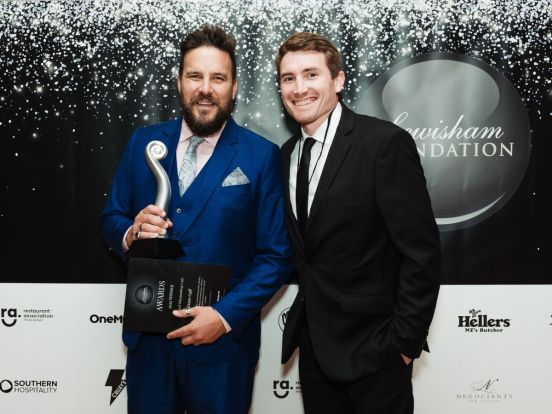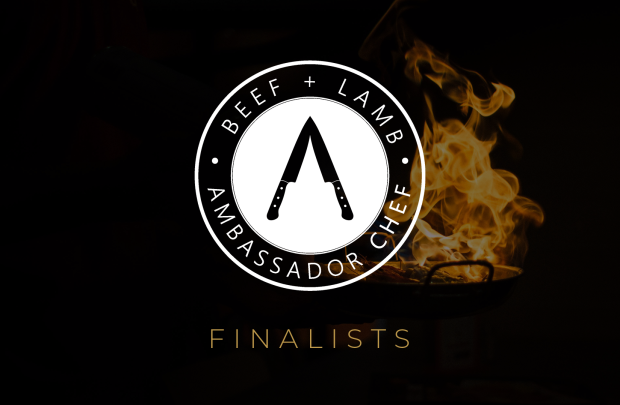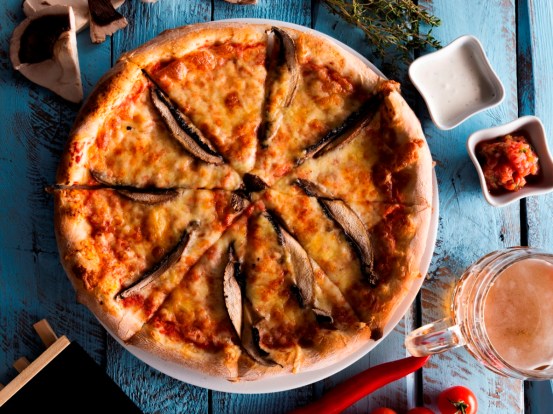Paul Baker is the GM of Vivace Espresso, a 100% owned and operated business supplying high quality coffee to cafes, hotels and restaurants nationwide. With more than 25 years hospitality experience under his belt, Paul is no stranger to facing upheavals and challenges. He shares his insights with Hospitality Business and provides some essential advice for those in the trade to get through the pandemic and back on track as quickly as possible.
We need to consider this as the new normal. The hospitality trade has always had to adapt to markets and trends and this is ultimately another shift, albeit a huge one.
Sort out your Finances
If you want to succeed post-lock down, you need to know who you owe money to, how much, who you have paid, what you have left over to pay people, at the same time being mindful of staff salaries and operating cash flow when opening.
The most important thing to do before opening is to start the communication with suppliers and work on debt management. Create a very simple payment plan with your suppliers and contractors with the eye of keeping all current trading debt (after the lockdown) weekly.
Show Compassion
It’s going to be different for all – most wholesale suppliers will know they are in this for the long haul, they will have debts too so it’s better to work on a great relationship so you both stay in business and get through this.
When we do eventually come out of this, even when down to Levels 1 or 2, it will be winter – the hardest season of the year. Planning and communication will be the most essential tool any hospitality business can employ. Start this early, start now. Many may think they will need to increase margins by keeping the price current and lowering the quality of the product. My advice would be not to compromise on quality. Customers have been missing and reminiscing about their local – you want their first experience back to be a positive one. As the nation tightens its belt, the discretionary dollar will be harder to fight for. Ultimately people, more than ever, will want value and quality for their dollar.
Invest in Advertising
It might feel counterintuitive when you’re trying to curb spending but you cannot sit back and wait for people to turn up or to know you are open. Make the most of some excellent advertising rates and remind your customers you are still about. Don’t let them forget who you are and what you stand for in the industry.
I started in the hospitality trade while at university, right at the dark old days of the 1987 crash and the most important thing driven into us was to advertise. And when diners were at the premises we had to excel in customer service because we wanted to make it an experience for them and have them back again.
Support your Community
For the future success of all SMEs it’s important to support other Kiwi companies, where the money will shift around and within the country, not offshore. Check to see who actually owns the company you deal with, you may be surprised. When supporting local suppliers, sing from the rooftops about it as we are all in this together.
Trading in Level 3 – Is it Worth it?
It’s important to weigh up the costs for doing things in the national alert level three if you aren’t already set up. You need to ask yourself, will I get a return, if we only stay in level three for a short time?
Think about delivery costs and whether you use third party agencies like Uber Eats or others, because the 30% delivery fee really does eat away at the profit margin of a meal. Also, what is the quality when it gets there? What will the experience of the dinner be? Will rushing back be worth a potentially bad experience?
If you choose to deliver yourself, you still need to weigh in the extra costs: labour, vehicle, food licensing. Operators also must take steps to ensure packaging is up to standard under COVID-19 guidelines. You will need to ensure requirements are being met even if you want to make changes to the way you operate, such as adding delivery or repacking food into smaller packaging.
Your business might be better off financially in the short term to
carry the cost of the rent, keeping in mind the main utilities will be lower
and staff wages can be covered by the government
subsidy.
On the other hand, if we stay in level three for four weeks or more, would you
have been better off getting things going? It is important to have all
scenarios mapped out so you can make the best decision for your business.
Know Your Monsters
Without a doubt one huge challenge for our industry will be public hesitance around interactions and socialising. Patrons will be super sensitive to how staff and the premise present to them. Diners will be more sensitive to staff being unwell and the tidiness of the café or restaurant.
Debt management will also be crucial. The minimum wage has recently increased so you may be tempted to think you can drop headcount to below the bare minimum to succeed.
When minimum wage increases there is often a trend where staff seek pay increases to ensure the gap between their wage and the minimum is maintained. Weigh up the value on return here and don’t be fooled into thinking you can do all the roles yourself. An engaged team with depth to cover illness and well tended-to customers are crucial to delivering the high quality experience you need to deliver. You may be better off lowering staff hours and having more staff. We could see a return to fifteen years or so ago when many hospitality staff worked a couple of part-time jobs just to make up the hours.
Hospitality owners need to look after their own mental health as it’s going to be tough and extremely stressful. Suicide levels within the hospitality trade are one of the worst in New Zealand. Our government champions mental health, but I believe more will have to be spent on this in general, but particularly the hospitality industry otherwise it’s going to get ugly. Look out for yourself and your mates in the trade. Keep your networks going and talk it out.
It’s been documented prior to lockdown that well-known cafés across New Zealand are rejecting customer’s reusable cups for takeaway coffee as a precautionary measure to prevent the spread of COVID-19. The customer-provided reusable cup could be seen to pose potential cross-contamination risk, as cafes cannot guarantee that customers have cleaned their cup between uses and staff haven’t sanitised correctly when handling the cup.
However, society as a whole is more and more conscious about the environment and using disposable cups destined for landfill.
At Vivace Espresso we made the decision over a year ago to introduce commercially compostable cups for all takeaways, and we go through approximately 1.3 million cups per year. If the environment is important to your customers, consider that New Zealand can’t recycle plastic; everything ends up in the landfill. We have two options; either create more plastic recycling facilities or compost infrastructure.
Stand out from the crowd
Don’t veer too far away from your own identity as a café, your ‘why’ is what makes you different from the other hundred sites around the neighbourhood. Be prepared to pay a little more for quality products, the pure desire of your guest will be the experience so they will want real value for money and the complete package.
At Vivace Espresso, we faced significant challenges following the Christchurch earthquake. We got through it by systemising everything and keeping true to our values, ensuring not just our team were coping but our extended Vivace Espresso family – our café customers – we worked with them on plans and helped many survive.
We had a great Business As Usual plan before which helped and a great willingness from the team to come out the other side. From experience, we know there is a way out and we will recover – it may take time but we will come out stronger on the other side.
We adapted to our new normal then, we worked on under-developed markets, looked at indirect costs but not quality, took measured risks that would return a smaller but gradual return with a longer focus.
Vigilance & the future of hospitality in New Zealand
This may be the end of what we think the hospitality industry is all about. Coffee in New Zealand will always be strong, however our café owners will need to consider carefully who they deal with and why, and they need to really care about what’s in the cup because their drinkers do.
The cup quality is imperative. I was once told when I first started in the trade that all a diner remembers are the first five minutes and the last five minutes of their experience. Imagine how important coffee is for those last five minutes.
We will get out of this, I am confident of that but we have to be strict on cash and communicate with suppliers. Hospitality workers are at the forefront of any diseases. My concern is operators will try the “work 24/7 to save money” theory but this attitude will be detrimental to all, and could drive us back up the levels.
The worst thing any hospitality business wants is to shift from different levels and face further restrictions. We have all just experienced the additional costs, the fact that no insurance cover for such an event is available; the costs of food wastage and lack of foot traffic will be the death of the industry.
Hospitality is not an easy industry. A lot of people believe it has huge margins but we all know the truth. Most of us get into the trade the people contact and the enjoyment of making a difference in others’ lives.
Unfortunately people want quality and experience but don’t want to pay for it; as we all know that the balance of margins on the menu, cabinet, bar offering will be so crucial. Get to know your margins well, manage the till dockets, know what is selling and what isn’t, be proactive to ensure value is added where it can be, now we all have to manage the debt and perception of the value of the purchase.
At the end of the day we are in this together. We need to hold our heads up high, walk tall, buy local and support each other in solidarity to get through it.
Paul Baker (pictured with the owner of Vivace Espresso Bernard Smith) has been involved in the hospitality trade for over 25 years, working in bars, cafes, large chain hotels, restaurants – from fine dining, casual and street side. He has managed, owned and worked his way up and through the trade.








